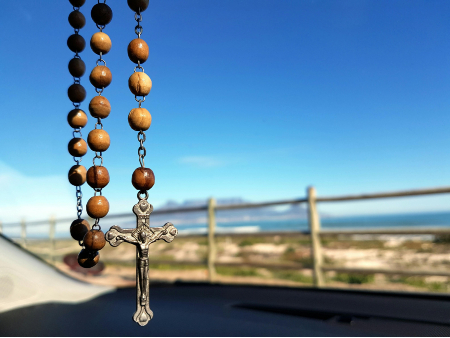We ask you, humbly: don't scroll away.
Hi readers, it seems you use Catholic Online a lot; that's great! It's a little awkward to ask, but we need your help. If you have already donated, we sincerely thank you. We're not salespeople, but we depend on donations averaging $14.76 and fewer than 1% of readers give. If you donate just $5.00, the price of your coffee, Catholic Online School could keep thriving. Thank you.Help Now >
What happens when we raise the age to buy cigarettes to 25?
FREE Catholic Classes
The American Academy of Pediatrics (AAP) released a new policy statement this week urging policymakers to raise the minimum age people can buy nicotine products from 18 to anywhere from 21 to 25.
Highlights
Catholic Online (https://www.catholic.org)
10/26/2015 (8 years ago)
Published in Health
Keywords: Tobacco, AAP, American Academy of Pediatrics, Institute of Medicine, nicotine, tobacco, smokers, Federal Food and Drug Administration, e-cigarettes, policy, statement, health, teen, tween
LOS ANGELES, CA (Catholic Online) - Talks of raising the legal limit for the purchase of nicotine products have been around for years, but little has been done about it until now. The AAP claims "Tobacco dependence starts in childhood" and "There is no safe level of tobacco smoke exposure."
In March, the Institute of Medicine released a report saying that a ban for nicotine products for those under 21-years-old could benefit society with "4.2 million fewer years of life lost" among the next generation of American adults.By increasing the minimum age to purchase nicotine-laced products, those most vulnerable to addiction, 15 to 17-year-olds, have a higher chance of not becoming addicted.
The study estimated a result of nearly a quarter-million fewer premature deaths and 50,000 fewer deaths from lung cancer among millennials.
The U.S. Food and Drug Administration studied predicted benefits of implementing a higher minimum age from 18 to 19, 20, 21, and 25-years-old. It discovered that the greatest health benefits would come from raising the legal age to 25, which could decline adult smokers by 16 percent. If the age was raised to 21, smoking rates would fall 12 percent.
Though the negative effects of smoking are well-known, over 50 percent of current smokers admit they started smoking before they were 18-years-old, and with the introduction of e-cigarettes, tween and teen smokers has tripled within the span of a single year.The AAP policy asks that the U.S. Federal Food and Drug Administration regulates e-cigarettes the same way cigarettes, cigars and chewing tobacco are.
American Cancer Society's Cancer Action Network member Chris Hansen said, "powerful interventions are needed to keep youth from lifelong addictions to these deadly products."
The American Academy of Pediatrics called policy, "a crucial contribution to the debate on tobacco access for young people," with the academy's president, Dr. Sandra G. Hassink, adding, "There is no safe way to use tobacco."
The policy states, "Tobacco is unique among consumer products in that it severely injures and kills when used exactly as intended. Protecting children from tobacco products is one of the most important things that a society can do to protect children's health."
To read the policy in its entirety, click here and let us know in the comments what you think about raising the legal limit.
---
'Help Give every Student and Teacher FREE resources for a world-class Moral Catholic Education'
Copyright 2021 - Distributed by Catholic Online








 Daily Readings for Tuesday, April 16, 2024
Daily Readings for Tuesday, April 16, 2024 St. Bernadette: Saint of the Day for Tuesday, April 16, 2024
St. Bernadette: Saint of the Day for Tuesday, April 16, 2024 Prayer for our Family #1: Prayer of the Day for Tuesday, April 16, 2024
Prayer for our Family #1: Prayer of the Day for Tuesday, April 16, 2024

